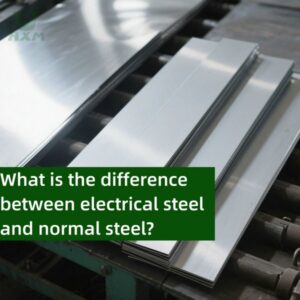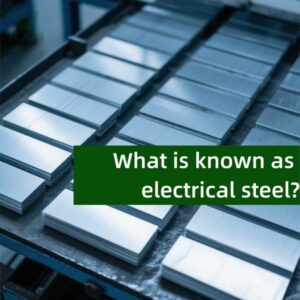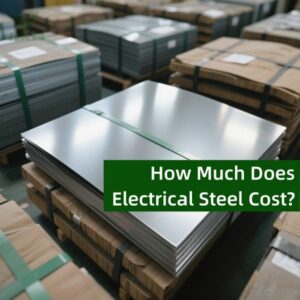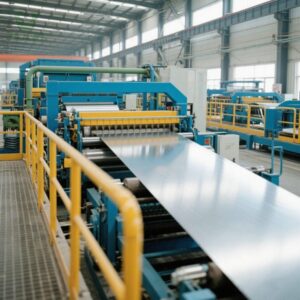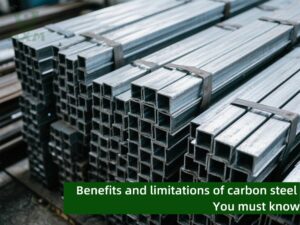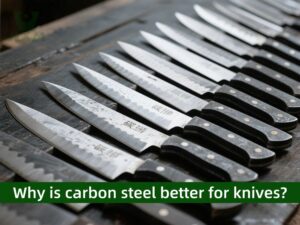
As a senior expert in metal materials from Huaxiao Alloy, I have encountered a wide range of alloys and metals in my professional journey. Two metals that have consistently piqued my interest are Monel vs Titanium due to their unique properties and applications. While both metals offer distinct advantages in specific use cases, they differ significantly in terms of composition, mechanical properties, corrosion resistance, and more. Let’s delve into the details of Monel and Titanium to understand their differences.
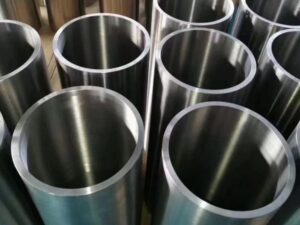
Monel k500 is a precipitation-hardened nickel-copper alloy, also known as Alloy K500. Huaxiao-alloy is a professional Monel k500 supplier in China with a more competitiver price.
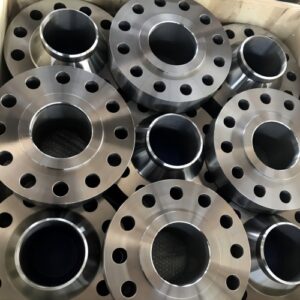
Monel 400 (UNS N04400, NCu30) The organization of Monel 400 alloy is a high-strength single-phase solid solution, which is one of the most used, most versatile, and excellent all-around corrosion-resistant alloys.
Monel vs Titanium: What's the Difference?
Monel vs Titanium - 1. Definition
Monel:
Monel is a nickel-copper alloy that has been used for over a century in various industrial applications. Its composition typically ranges from 60% to 70% nickel and the remainder being copper, with small amounts of other elements like iron, manganese, and silicon. Monel’s most noteworthy characteristics are its excellent resistance to corrosion and high strength, especially in saltwater and other harsh environments.
Titanium:
Titanium, on the other hand, is a lightweight metal with a high strength-to-weight ratio. It is primarily composed of titanium, with small amounts of other elements like aluminum and vanadium added to enhance its properties. Titanium is renowned for its resistance to corrosion, especially in saltwater and other chemically aggressive environments. Its light weight and high strength make it an ideal material for aerospace, medical, and marine applications.
Monel vs Titanium - 2. Composition and Alloying Elements:
The primary difference between Monel and Titanium lies in their composition. Monel is primarily a nickel-copper alloy, while Titanium is primarily titanium with minor alloying elements. The alloying elements in both metals contribute to their unique properties and applications.
Monel vs Titanium - 3. Mechanical Properties:
Monel and Titanium also differ in their mechanical properties. Monel offers good strength and ductility, making it suitable for use in complex shapes and structures. Titanium, on the other hand, is known for its high strength-to-weight ratio and excellent fatigue resistance, making it ideal for applications where lightweight materials are preferred.
Monel vs Titanium - 4. Corrosion Resistance:
Both Monel and Titanium exhibit excellent corrosion resistance, but their resistance mechanisms differ. Monel’s corrosion resistance is primarily due to the formation of a protective oxide layer on its surface, which prevents further corrosion. Titanium, on the other hand, forms a naturally occurring oxide layer that is extremely stable and resistant to attack by most chemicals. This oxide layer on Titanium is so stable that it can even self-repair if damaged.
Monel vs Titanium - 5. Applications:
The differences in composition, mechanical properties, and corrosion resistance of Monel and Titanium lead to distinct applications for each metal. Monel is commonly used in marine applications, chemical processing equipment, and high-temperature environments due to its resistance to corrosion and high strength. Titanium, on the other hand, finds widespread use in aerospace, medical implants, and jewelry due to its light weight, high strength, and excellent corrosion resistance.
Monel vs Titanium - 6. Cost:
Cost is another factor that distinguishes Monel and Titanium. Titanium is generally more expensive than Monel due to its scarcity and the complexity of its processing. However, the high performance and durability of Titanium often justify its higher cost in critical applications.
Conclusion
In conclusion, Monel and Titanium are two distinct metals with unique properties and applications. Monel, a nickel-copper alloy, offers excellent corrosion resistance and strength, particularly in harsh environments. Titanium, on the other hand, is a lightweight metal with a high strength-to-weight ratio and excellent corrosion resistance, making it ideal for applications where lightweight materials are preferred.
Thank you for reading our article and we hope it can help you to have a better understanding of the differences between Monel and Titanium. If you are looking for Monel Alloy suppliers online now, please don’t hesitate to contact Huaxiao Alloy.
As a leading supplier of high-temperature alloys from Shanghai China, Huaxiao Alloy provides customers with high-quality alloys such as Monel K500 and Monel 400, Inconel 602 alloy, Hastelloy S Alloy, Inconel Alloy 600, Inconel Alloy 601, Inconel 625 UNS N06625, Hastelloy B3 (UNS N10675), Hastelloy D205, Hastelloy G30 (UNS N06030), and Hastelloy C-2000 at a very competitive price.


Monel k500 is a precipitation-hardened nickel-copper alloy, also known as Alloy K500. Huaxiao-alloy is a professional Monel k500 supplier in China with a more competitiver price.

Monel 400 (UNS N04400, NCu30) The organization of Monel 400 alloy is a high-strength single-phase solid solution, which is one of the most used, most versatile, and excellent all-around corrosion-resistant alloys.
No, Monel is not lighter than titanium.
| Material | Density (g/cm³) |
|---|---|
| Monel | ~8.80 |
| Titanium | ~4.50 |
- Titanium is significantly lighter, which is why it is commonly used in aerospace and lightweight applications.
- Monel, being a nickel-copper alloy, is much denser and heavier, but it offers superior corrosion resistance in harsh environments.
Key Disadvantages:
- Cost: Monel is expensive due to its high nickel content.
- Weight: Monel is heavy compared to alternatives like titanium and aluminum.
- Workability: Difficult to machine and form because of its toughness.
- Limited Strength at High Temperatures: Though corrosion-resistant, Monel has limited structural strength at very high temperatures compared to alloys like Inconel.
- Galvanic Corrosion: Can suffer from galvanic corrosion when coupled with other metals in a saltwater environment.
Yes, Monel is heat resistant to a certain degree.
Temperature Resistance:
- Monel retains its mechanical properties up to 500-600°C (932-1112°F), making it suitable for moderate high-temperature applications.
- However, it is not as heat-resistant as Inconel or other nickel-based superalloys, which can withstand much higher temperatures.
Applications:
- Heat exchangers, boilers, and other moderately high-temperature equipment.
The answer depends on the application:
| Aspect | Titanium | Inconel |
|---|---|---|
| Density | Lightweight (4.5 g/cm³). | Denser and heavier (8.4 g/cm³). |
| Strength-to-Weight | Higher due to low density. | High strength but much heavier. |
| Corrosion Resistance | Excellent, especially in seawater. | Superior, even in extreme environments. |
| Temperature Resistance | Limited to ~600°C. | Exceptional up to ~1200°C. |
| Cost | Lower than Inconel. | High due to nickel content. |
Conclusion: Titanium is better for lightweight and non-extreme environments, while Inconel is ideal for high-temperature and high-stress conditions.
The answer depends on the desired property:
| Property | Better Material |
|---|---|
| Strength | Tungsten: Highest tensile strength of all metals. |
| Hardness | Diamond (for non-metals) or tungsten carbide. |
| Corrosion Resistance | Inconel and Hastelloy in harsh chemical environments. |
| Temperature Resistance | Inconel or Tantalum for extreme heat. |
| Cost-Effectiveness | Steel for general structural use. |
- High Nickel Content: Monel alloys typically contain 60-70% nickel, which is a costly element.
- Manufacturing Costs: Difficult to machine and work due to its toughness.
- Corrosion Resistance: Its superior resistance to seawater, acids, and alkalis makes it a premium material.
- Limited Production: Produced in smaller quantities compared to more common alloys like stainless steel or aluminum.
| Metal | Key Features |
|---|---|
| Tungsten | Highest tensile strength. |
| Titanium | High strength-to-weight ratio. |
| Chromium | Extremely hard and corrosion-resistant. |
| Inconel | Exceptional strength at high temperatures. |
| Steel (Maraging) | High strength and toughness. |
| Alternative Material | Why It’s a Good Alternative |
|---|---|
| Aluminum Alloys | Lightweight, less expensive, and easy to work with. |
| Inconel | Better for high-temperature environments. |
| Carbon Fiber | Lightweight and strong, ideal for aerospace. |
| Stainless Steel | Affordable with good corrosion resistance. |
Conclusion: The best alternative depends on the application. For lightweight needs, aluminum or carbon fiber works well; for high heat, Inconel is better.
Key Disadvantages:
- Cost: Expensive due to extraction and processing complexity.
- Workability: Difficult to machine and weld.
- Temperature Limitation: Loses strength at temperatures above 600°C.
- Reactivity: Can react with other metals at high temperatures.
- Gallium Susceptibility: Prone to galling (surface damage) under friction.
Monel vs Titanium: What's the Difference?
Call Us Now!!!

